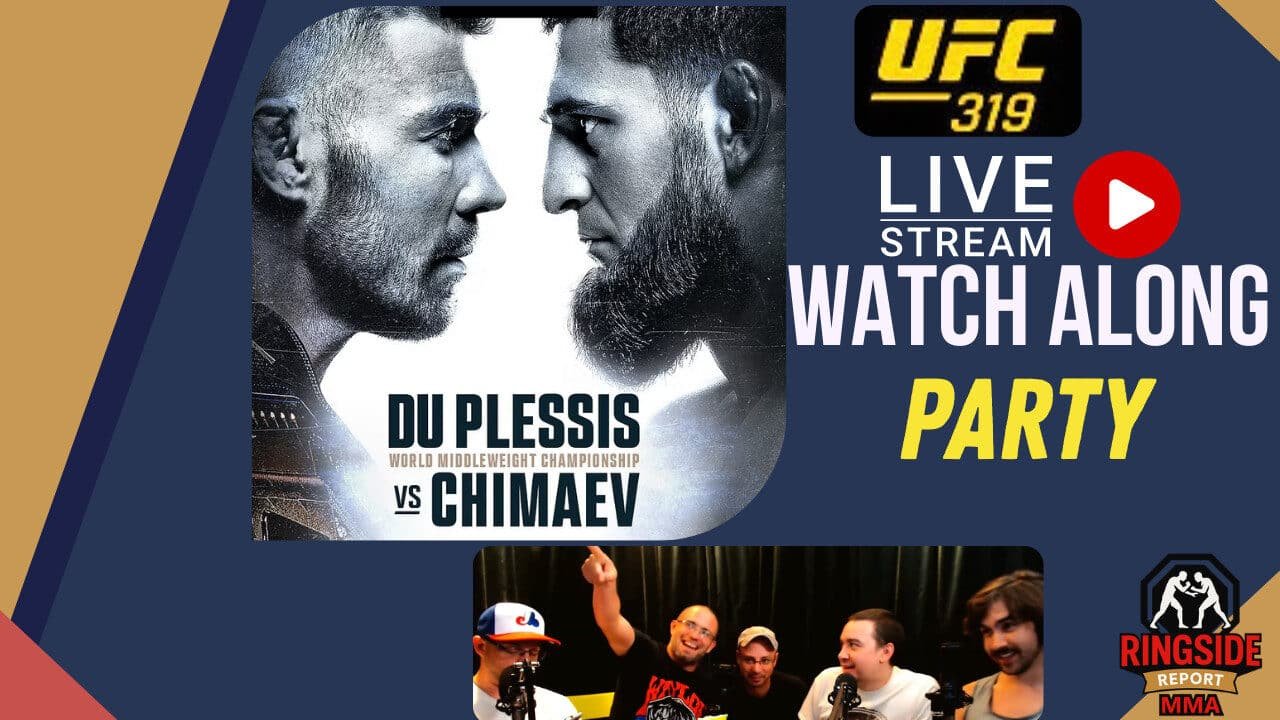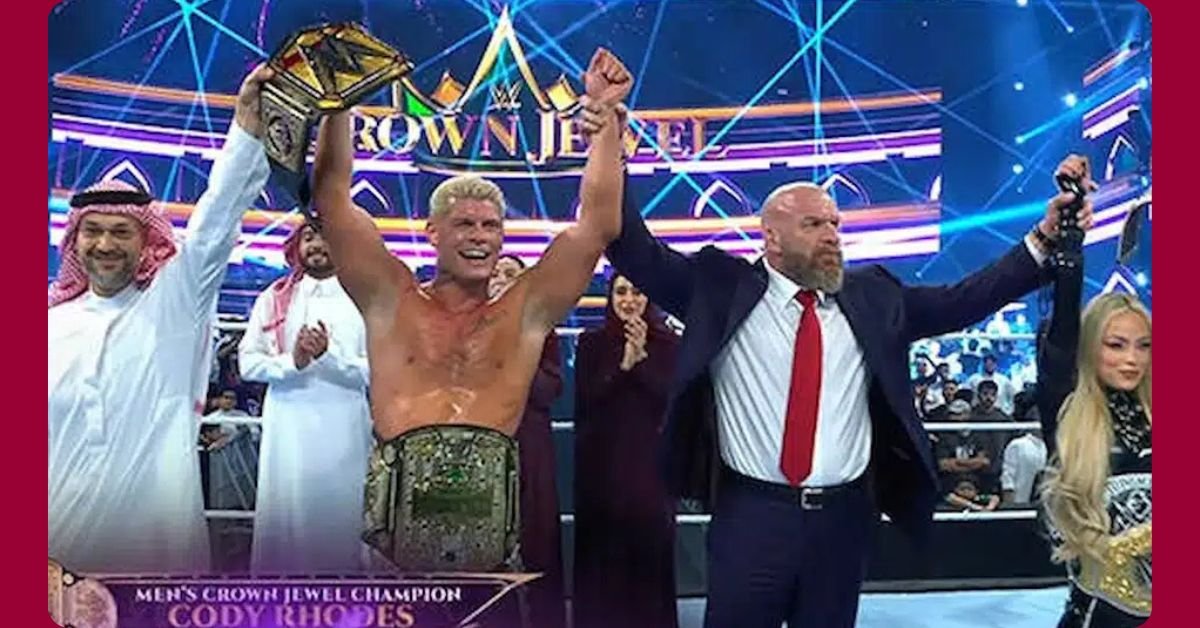This week’s Ringside Report MMA breaks down the biggest fight and biggest business story of the year.
Two massive stories are colliding this week, and both will shape the future of this sport. While Dricus Du Plessis and Khamzat Chimaev get ready to settle the middleweight title Saturday night at UFC 319, the UFC just signed a deal that kills the pay-per-view model forever.
This Thursday at 8:05 PM Eastern Time, Dave Simon, Fred Garcia, and AJ D’Alesio will dissect both stories live on YouTube, Rumble, Twitch, and Kick—because understanding this business matters as much as knowing who can take a shot.
The Champion Nobody Believes In
Dricus Du Plessis walks into his third title defense as a betting underdog. Let that sink in. A champion with an 11-fight win streak, two successful defenses, and violent finishes over Israel Adesanya and Robert Whittaker is getting less respect from oddsmakers than an unbeaten challenger who hasn’t fought five rounds.
Du Plessis thrives on this disrespect. His style initially looks awkward, but it eventually becomes more cohesive. His pressure seems manageable until you’re getting broken down in waves. Most importantly, he’s proven himself against elite competition, while Chimaev has faced exactly one true contender in his last four fights.
It’s not wrestling, and it’s not grappling. It’s MMA,” Du Plessis said recently about facing Chimaev’s ground game. That’s champion confidence talking.
The Wolf’s Championship Moment
Khamzat Chimaev has been “the future” for so long that people forget he’s never fought past the third round. His submission of Robert Whittaker was dominant and brutal—jaw dislocated, teeth gone—but it lasted four minutes. Saturday night could go 25.
Chimaev’s path is clear: overwhelming pressure from the opening bell, chain wrestling, suffocating top control. He’s built to finish fights early, not grind through championship rounds. That’s not criticism; it’s tactical reality.
The betting odds favor Chimaev, but championships aren’t won on paper. They’re earned in moments when everything goes wrong and you find a way anyway.
Pico’s Prove-It Fight
The co-main deserves attention. Aaron Pico finally gets his UFC shot against undefeated Lerone Murphy, and recent history isn’t kind to Bellator graduates making this transition. Pico’s wrestling credentials are legitimate—Olympic trials and Golden Gloves don’t lie—but the UFC’s featherweight division chews up prospects.
Murphy represents everything methodical about UFC development: steady improvement, intelligent matchmaking, and earned opportunities. Pico represents the wild card—elite skills from another organization with something to prove on the biggest stage.

The $7.7 Billion Earthquake
Here’s the story that changes everything: the UFC’s new Paramount deal doesn’t just set financial records—it nukes the entire pay-per-view system. Starting in 2026, those $80 charges disappear. Every numbered event lives on Paramount+ for your monthly subscription fee.
For fans spending over $1,000 annually on pay-per-view, this is massive savings. For the UFC, it’s guaranteed money—$1.1 billion per year, whether events bomb or break records. No more gambling on buy rates.
But there’s a catch that nobody’s talking about loudly enough.

The Fighter Pay Reality Check
More money for the UFC means what, exactly, for fighters? Dana White promises everyone wins when the company wins, but top fighters are losing pay-per-view points—actual money tied to event performance. Meanwhile, $50,000 performance bonuses have remained unchanged since 2013 despite massive revenue growth.
The math is uncomfortable: guaranteed corporate revenue, eliminated fighter revenue sharing. White’s optimism sounds great until you realize the people generating this value just lost their biggest bargaining chip.
What This Week’s Show Covers
Dave, Fred, and AJ aren’t just breaking down fights—they’re examining how this sport works. From Du Plessis proving champions earn respect through violence, not Vegas odds, to what guaranteed streaming revenue means for everyone who steps into that cage.
The tactical breakdown matters: Can Du Plessis survive early chaos and impose his will in championship rounds? Does Chimaev’s perfect record mean anything if he’s never been tested beyond 15 minutes?
The business breakdown matters more: When corporations guarantee themselves billions while athletes lose direct revenue sharing, what does that say about where this sport is heading?
The Bigger Picture
Combat sports are changing faster than ever. Streaming killed cable, now it’s killing pay-per-view. Cross-promotional movement is accelerating. Fighter compensation debates are intensifying.
Saturday’s fights happen in this context. Champions and challengers compete while the entire economic structure shifts beneath them. Understanding both levels—the immediate violence and the long-term business—separates real analysis from surface-level hype.
Catch this week’s Ringside Report MMA live Thursday, August 14th at 8:05 PM Eastern Time on YouTube, Rumble, Twitch, and Kick. Then join our UFC 319 Watch-Along Saturday as we witness both a potential changing of the guard and the last pay-per-view era main event.
The sport’s evolving. Your understanding should too.





